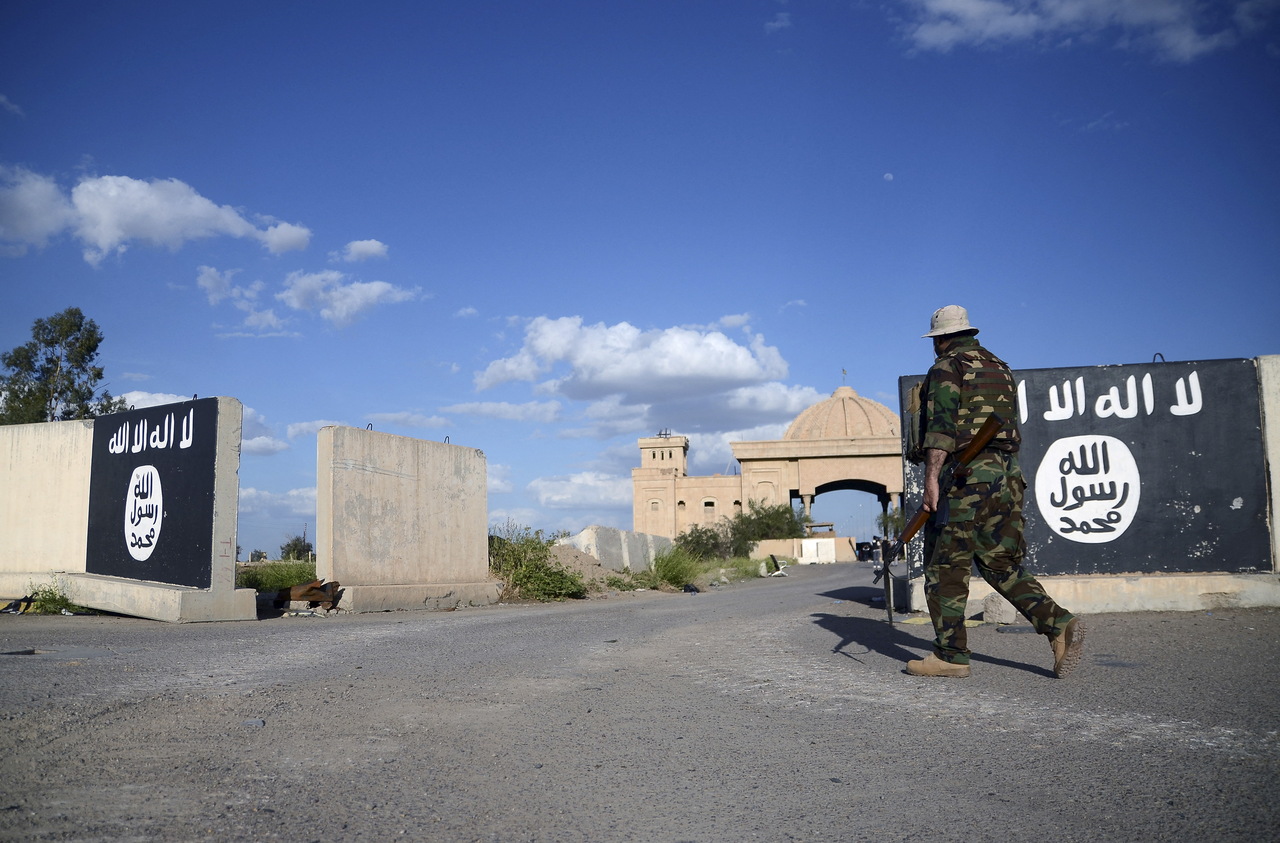For subscribers
ISIS has a new leader - why it is vital to break the bai'at
The oath of allegiance is key to the leadership’s hold on members and the continuation of the cycle of violence.
Sign up now: Get ST's newsletters delivered to your inbox

A 2015 photo of walls painted with the flag commonly used by Islamic State militants in Tikrit, Iraq.
PHOTO: REUTERS
Earlier this month, social media platforms as well as online chat groups were abuzz with news and images of members of ISIS (Islamic State in Iraq and Syria) pledging bai'at to Abu Hassan al-Hashimi al-Qurashi, their new caliph. The new leader himself is nowhere to be seen in the video clips. Little is known too about his background, with some reports claiming that he is the brother of ISIS founder Abu Bakr al-Baghdadi.
What is notable in this transfer of command is the role of the bai'at, an oath of allegiance that is one of the sources of power of the terrorist group, and also a potential means of undermining it if used smartly by counter-narrative advocates.


